Nevada’s Firearms Investments. Mexico’s Gun Lawsuit
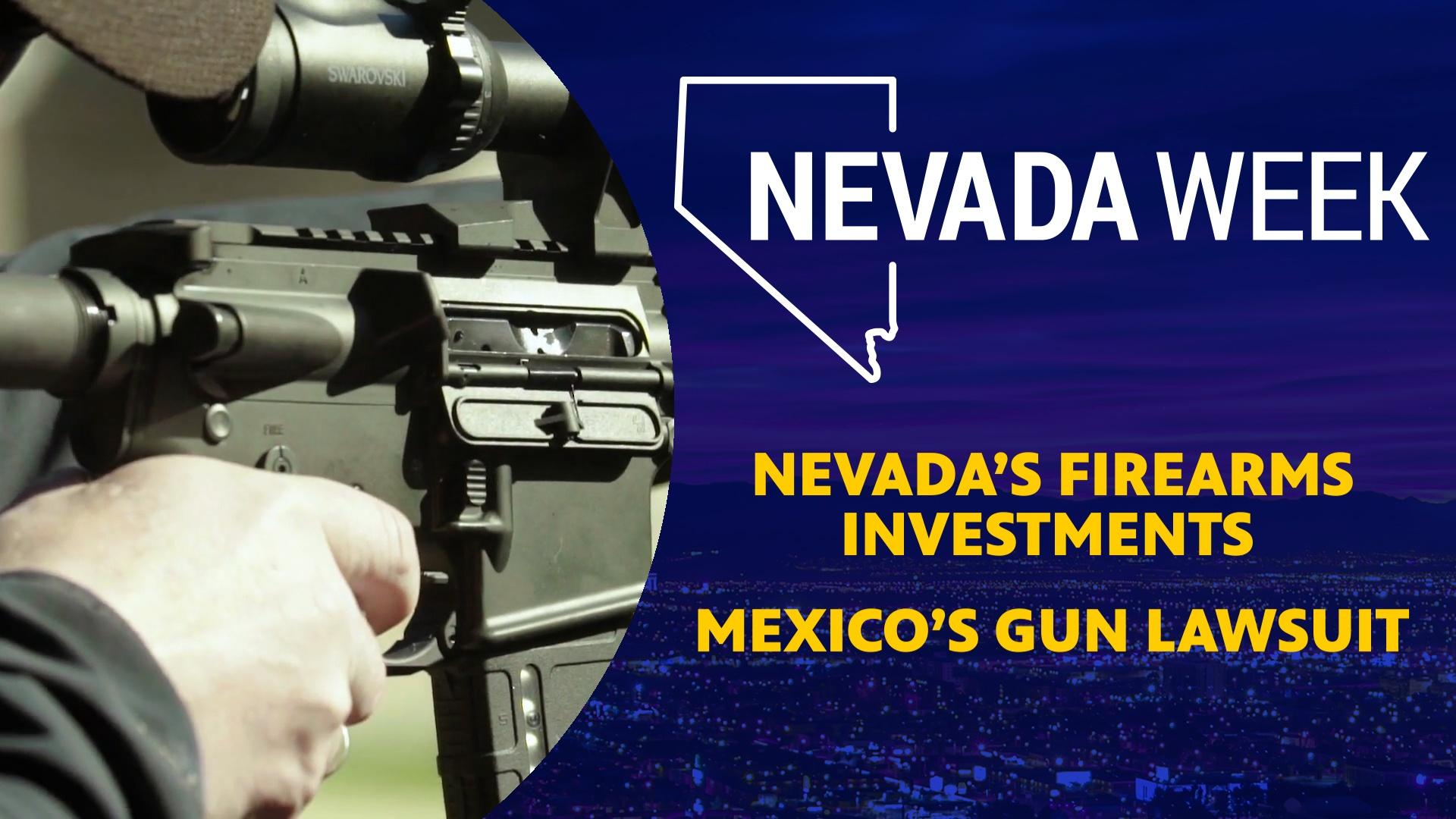

The state treasurer’s decision after two mass shootings and gun shop owner’s reaction.
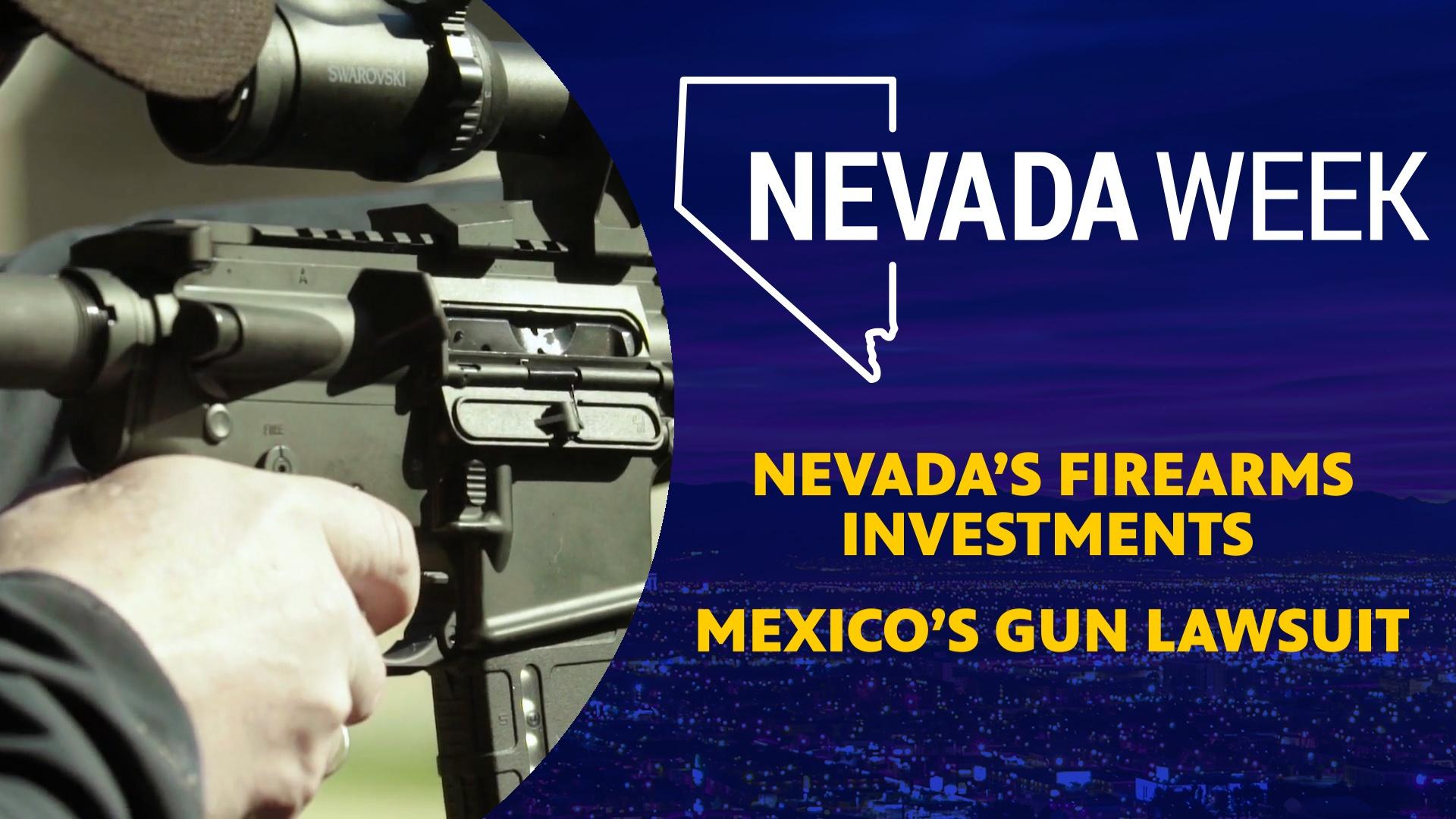
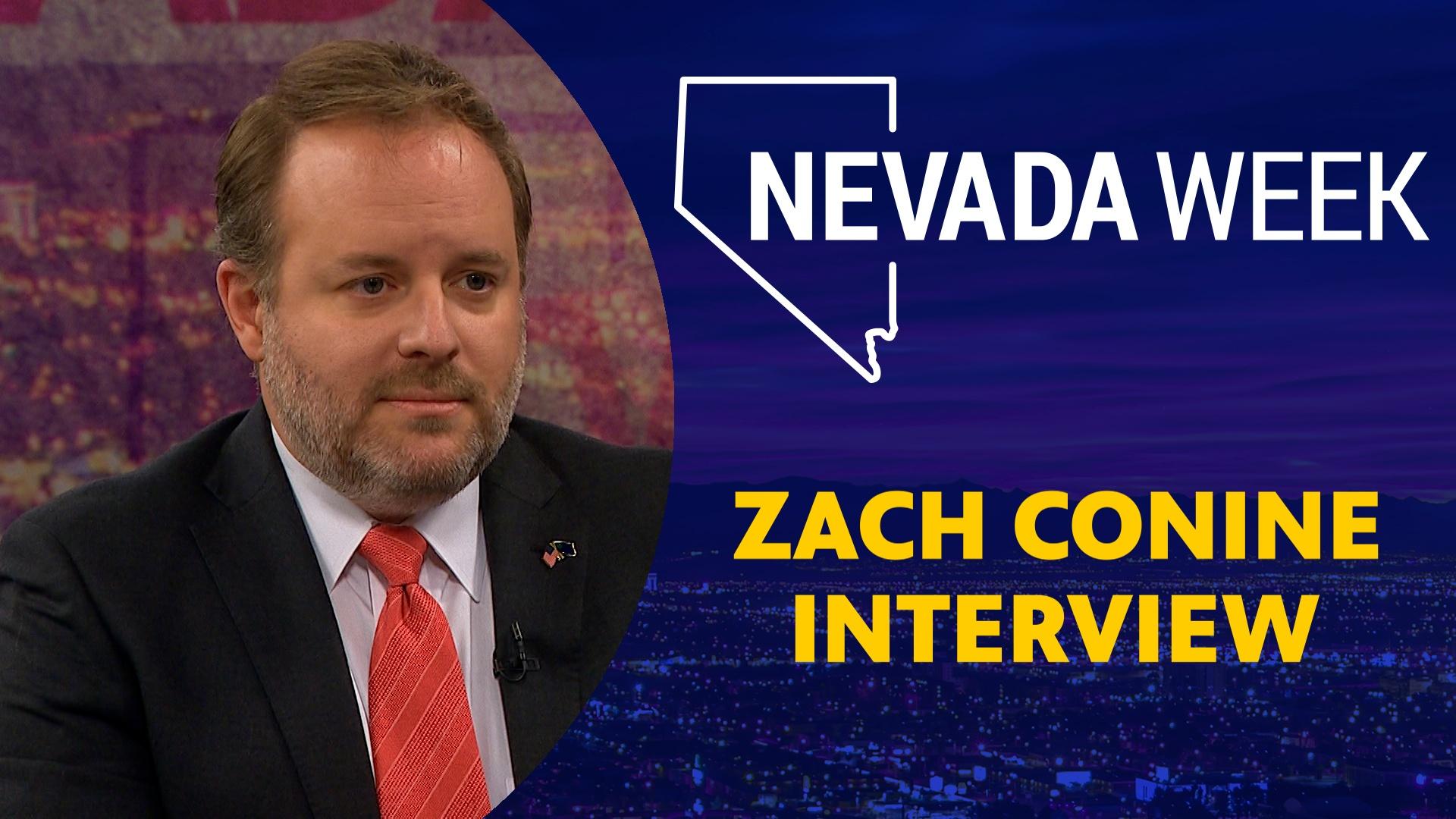
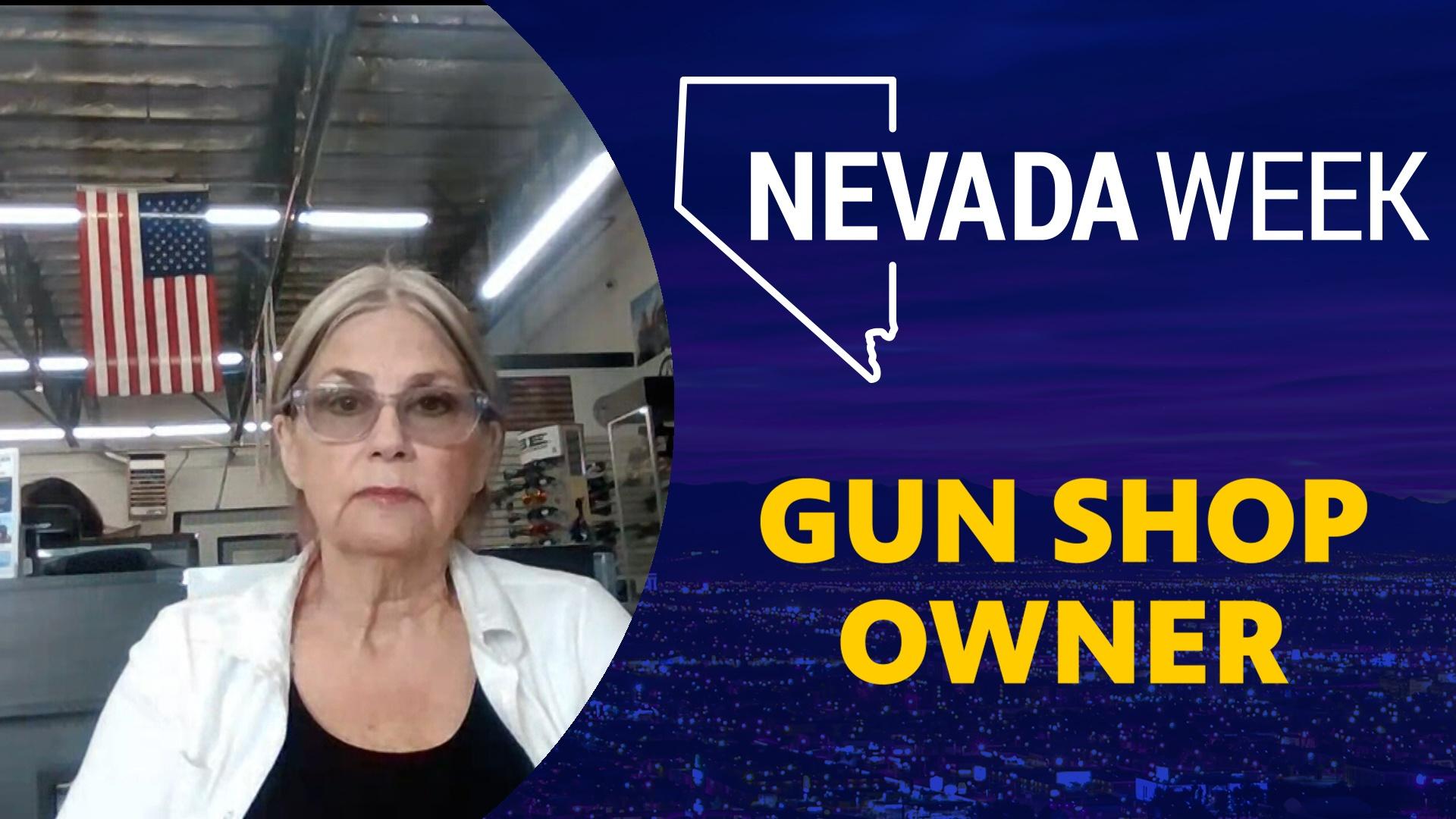
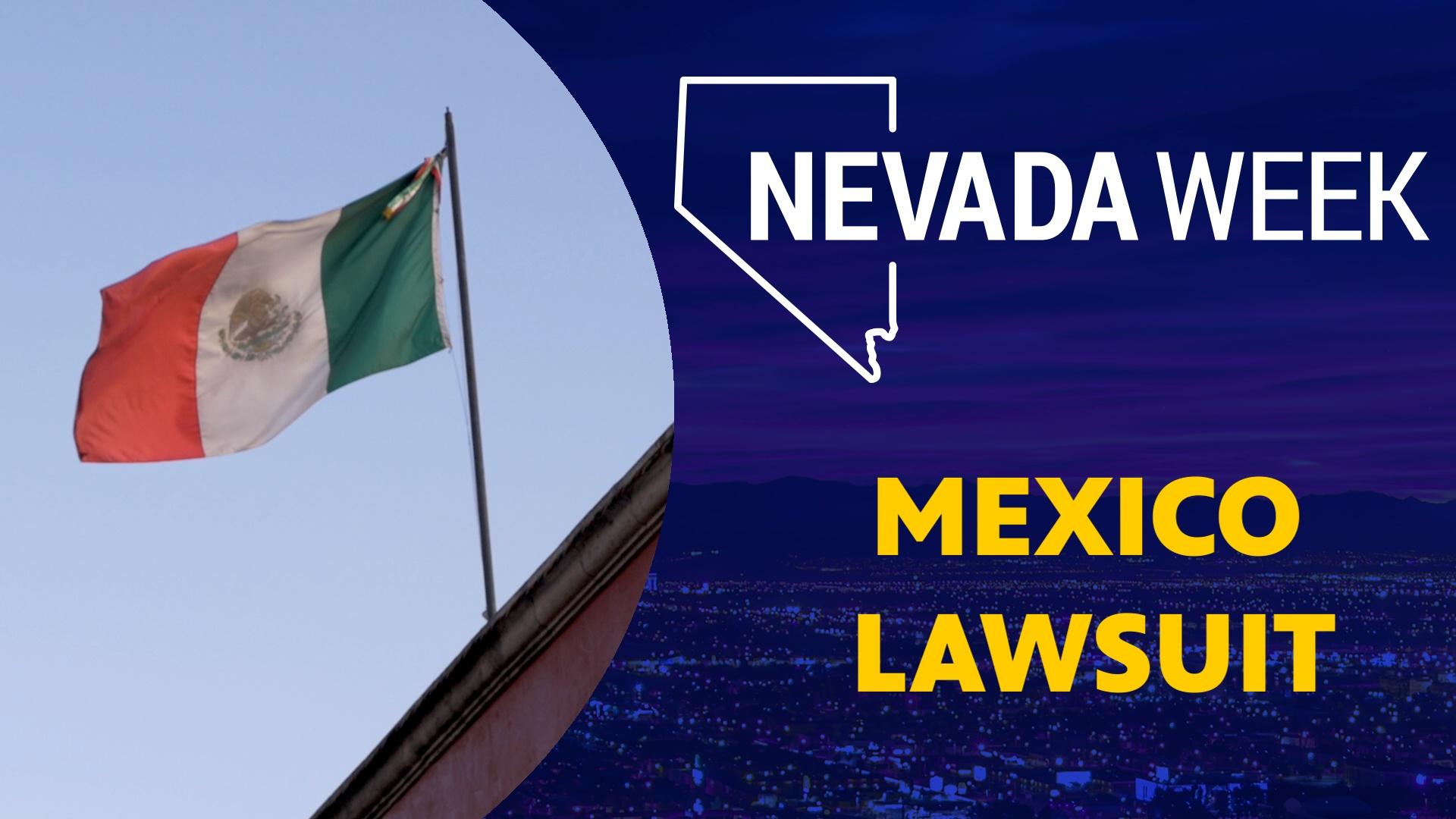
SEASON 4: EPISODE 50 | Airdate: 6/24/2022
After years of debate, there was finally some movement nationally toward narrow gun reform laws. President Joe Biden signed the law just a few weeks after two mass shootings. One in Uvalde, Texas left 19 children and two teachers dead. Another, a few days earlier, in Buffalo, New York left 10 people at a grocery store dead.
Also following the shootings, Nevada State Treasurer Zach Conine announced he would be divesting $89 million in state funds from companies that sell or manufacture assault-style weapons. Conine told Nevada Week that he did not think it was a “bold move.” Instead, he believes it is a prudent move. He said as the chief investment officer for the state he has to look at risk and he believes the companies that manufacture or sell these types of weapons are a financial risk.
He also noted that these companies don’t perform better than other comparable companies but they are at a higher risk for litigation. He believes there is a better chance that their value will go down instead of up.
Conine said that there have been more than a hundred mass shootings in the years since the mass shooting on the Las Vegas Strip in 2017 and every time there is a mass shooting using assault-style weapons, there is another chance for a lawsuit. While there are legal protections for gun makers, every time there is a lawsuit filed, they have defended themselves, which takes money.
Conine believes there are better companies the state can invest in without the risks the gun manufacturers have. He also said that the divestment they have already done was at no loss to Nevadans, and with the bond side of their investments, his office will not sell unless they can sell it at a profit.
In addition, the treasurer believes there is a moral risk. He said that in investing you give up something now for a bigger return later. For instance, forgoing getting coffee now to invest that money into retirement funds for a later return, but, “what is the point of any of that if the people we’re saving for in the future aren’t around for it?”
There are some funds that the Treasurer’s Office has no control over, including the state’s college savings plan. Conine said that the college savings plan is one of the best in the country, but people should know where their money is being invested. He said he wants investors to know what companies their money is being invested in so they can make the best decision for themselves.
Some have pushed back on the idea of states and local jurisdictions divesting from gun makers. Besides the idea that state and local treasurers shouldn’t have a social aspect to their work, some opponents say it doesn’t really work to change the action of companies.
Conine disagrees, pointing out that there isn’t any Apartheid in South Africa anymore. He agreed that maybe Nevada’s $89 million won’t move the needle, but other states and cities have divested from the same companies, and perhaps, if enough states, cities, and other large-scale investors divest of those stocks, it will force a change.
In response to the state treasurer’s actions, Nevada Week received this statement from the Nevada Firearms Coalition “with his divestment in firearms-related stocks, State Treasurer Conine is trying to demonstrate that he is ‘doing something' about violence with guns.
That divestment will have zero impact on human violence with guns. But it looks good to his voters.
What his disinvestment policy will do is hurt the financial returns of the Silver State’s investment portfolio, which he is legally obliged to husband and grow.
Since the 2020 summer riots and political moves to defund the police, more Americans are losing faith that their ‘government’ will protect them from violence.
Sales of firearms have risen dramatically, especially among women and Black Americans. Greater profitability for firearms companies translates into a strong return on investment.
The treasurer’s job is to be a fiduciary for the taxpayers of Nevada, not play politics with tax dollars.”
Kristy Scott, owner of Battle Born Ammunition & Firearms in Carson City, also disagreed with Treasurer Conine’s plans. She said when someone uses their office like he has it puts a “dark mark” on gun shop owners.
She said over the last five years the “anti-gun industry” has put many businesses like hers out of business. She said there are some banks, like Chase, that won’t loan to people in the gun businesses. Scott said these efforts are just one more way the Second Amendment is being chipped away.
She also disputed the assertion that companies that make and sell assault-style weapons are more financially risky. She said reports from gun owner associations show the positive economic impact that the industry makes on the country. She also said that she doesn’t know anyone who has used guns to kill anyone and she hasn’t sold an assault-style weapon to anyone that has killed anyone.
Overall, Scott said her business is going through a rough patch right now because with the cost of living and inflation going up people don’t have the money to shoot guns recreationally anymore.
U.S gun companies are facing further pressure from several other states and from outside the country as well. In August of 2021, the government of Mexico filed a $10 billion lawsuit against 10 U.S. gun manufacturers, accusing them of “knowingly facilitating the trafficking” of massive quantities of firearms to Mexico’s drug cartels.
Earlier this year, attorney generals from 13 states and Washington, D.C. signed an amicus brief to the lawsuit. Nevada did not.
In a statement, Attorney General Aaron Ford’s office gave Nevada Week the following statement.
“The Connecticut state laws at issue in the case are unlike those in place in Nevada, hence our decision to not join with the group. However, we are monitoring the case and will look to join in the event that circumstances make it appropriate. AG Ford has long supported common-sense gun laws and reform – including closing gun show loopholes, banning ghost guns and expanding background checks – and will continue to do so in the future.”
Julian Escutia Rodriguez is Nevada’s Consul of Mexico. He said the government of Mexico filed the suit because it believes U.S. gun makers are negligent and are facilitating the sales by using bulk sales and straw purchases to get the weapons into the hands of the cartels.
“There’s a chain of illicit practices that are really troublesome and that are fueling violence in Mexico,” he said.
Rodriguez also said that gun manufacturers are using special marketing to make the guns more attractive to cartels. For instance, they use sayings from and images of Mexican heroes and icons on the weapons to make them more attractive.
He said that Mexico actually has very strict gun laws but the cartels are getting around them by buying from gun sellers and makers in the U.S.
Rodriguez admitted that drug cartels are a massive problem in his country that the government is working on but he believes this lawsuit is part of that effort.
